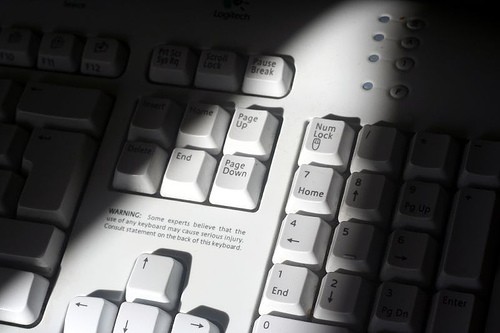Huffington Post: The fight for Canadians’ personal information heads to court
Independent ISP TekSavvy has been granted additional time to notify Canadians that they could soon be implicated as part of an ongoing copyright crackdown. Although TekSavvy is not a defendant in the ongoing court case, it's re-assuring to see efforts made by a service provider to help Canadians understand and prepare for any charges filed. Learn more about these latest developments at The Huffington Post and read about the copyright laws that are infringing upon Canadian privacy in our blog post. Article by J. David Ellis for The Huffington Post Heading down to court Monday morning, I was concerned I might be late to get a seat for the Voltage hearing. I had my iPhone ready to record protestors and general ruckus. But Guy Fawkes was a no-show. I arrived to find the courtroom eerily quiet and half-empty. What has TekSavvy been required to do for its customers up to now? Short answer: absolutely nothing. As you read on, keep in mind this case is Voltage vs John Doe and Jane Doe -- not vs TekSavvy.
One of the most striking things about this case concerns the complaints I've seen online about TekSavvy's role. Probably the busiest place for this conversation is the forum on dslreports.com, which attracts a lot of hardcore geeks.
On Saturday, Marc Gaudrault posted a lengthy comment headed "Why we are not opposing motion on Monday." Marc was once again going out of his way to help his customers understand the murky legal aspects of an action that might ultimately cost some of his subs as much as $5,000 (the new limit on statutory damages under our recently modernized Copyright Act). Here's part of Marc's explanation:
"Everybody should know though that we have looked into all angles to determine what our position should be in this situation and after spending a significant amount of time and soliciting a considerable amount of advice from numerous respected sources, we found that we simply could not comment on the merits of the case. Our place is to ensure that we provide adequate notice and also to make known to others that these requests have occurred and that the best way to make sure to avoid being involved is to simply not engage in such activities."
This effort prompted some surprisingly churlish comments from forum participants (not to say they were all like that). For example:
"Even though I wasn't accused if [sic] this, this is still bull. You roll over for these guys? you'll be getting attacked by every production company this side of the sun. Enjoy that. Seriously considering taking my business elsewhere. I want to know that my privacy is just that, PRIVATE."
Good luck getting respect for your privacy with Bell or Rogers.
The new legislation and its weird timetable
After many months of acrimonious debate, the Copyright Modernization Act received royal assent on June 29, though it did not come into force until publication on November 7 of the appropriate Order-in-Council in the Canada Gazette.
The statute isn't in its final form, however, since the government needs more time to consider an appropriate set of regulations for handling the new "notice-and-notice" mechanism in the Act. If notified by a copyright owner that a subscriber is allegedly infringing, Canadian ISPs will be required to issue their own notice to the subscriber informing her of the alleged infringement. Thus, as of today, the "notice-and-notice" provisions are still not in force.
So unless my amateur legal analysis is wrong, TekSavvy has until now been under no statutory obligation whatsoever to notify its customers of any of Voltage's shenanigans. Nevertheless, Marc and his colleagues have spent long hours over the last month consulting legal and other experts to determine what they should do to protect their customers' privacy. Legal counsel must have told TSI that, since it's not liable and not a defendant, the company should not intervene by opposing the Voltage motion, so as not to jeopardize its neutral carrier status (which is what frees them of any joint liability for the alleged infringements). Read more »
--
Read more at The Huffington Post


 Take action now!
Take action now!
 Sign up to be in the loop
Sign up to be in the loop
 Donate to support our work
Donate to support our work